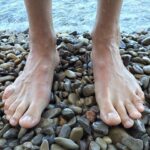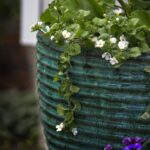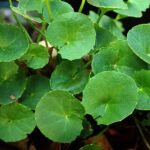Restoring nerve cells and the nervous system.
Last time, we talked about how nerve cells can be altered as a result of cancer treatment, causing lingering pain, tingling, and numbness, particularly in the hands and feet. We discussed how chemotherapy drugs, which saved our lives by killing cancer cells, made it challenging for nerve cells to take in nutrients and resulted in their breakdown.
Click here to learn about some of my preferred herbs for relieving nerve pain.
Today, we move onto the next step – repairing and restoring nerve cells and the nervous system.
Nervine Tonics - Herbs that repair and rebuild nerve tissue
Nervine tonics are herbs that help rebuild nervous tissue and the nervous system in general. They are often used to relieve pain and discomfort, but their true gift is aiding in rebuilding nerve tissue – something crucial in Chemotherapy-Induced Peripheral Neuropathy. In addition, these herbs provide emotional support, something we all need, especially after cancer treatment.
My preferred herbs for stabilizing, supporting, and healing nerve tissue include Ashwagandha, Milky Oats, Gotu Kola, and Black Cumin.
Milky/Wild Oats (Avena Sativa)
Milky Oats are soothing, cooling, and nourishing, like a healing balm that restores mind, body, and spirit. The herb, harvested when the grain is in its milky stage, helps rebuild and support all parts of the nervous system, including our emotions and responses.
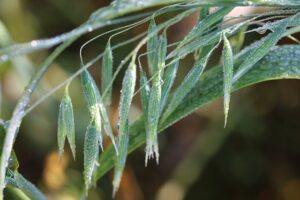
Gotu Kola (Centella asiatica)
Gotu Kola is one of my favorite adaptogenic and nervine herbs. Adaptogens help the body and mind cope with stress. Chemotherapy-Induced Peripheral Neuropathy (CIPN), like any long-term condition that involves pain, is stressful. Gotu Kola promotes deep healing, nourishment, and rejuvenation by fortifying the nervous system.
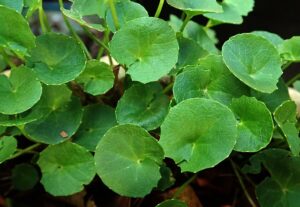
Plus, It may help eliminate accumulated toxins, nourish the cells, and reduce inflammation. I like to add it to my tea to relax my mind and body, and encourage peaceful sleep.
Ashwagandha (Withania sumnifera)
Ashwagandha is a herb that rejuvenates the entire system and supports nerve tissue. Its primary benefit is vitalizing the body, therefore helping to restore proper function. While it has a systemic impact, Ashwagandha is also able to narrow its effects, leading to a stabilization of the cell replication process. Pretty cool huh.
Yoga Therapy and Chemotherapy-Induced Peripheral Neuropathy
In a recent study by the American Association for Cancer Research, yoga therapy demonstrated promising results for improving neuropathy-related pain and quality of life. When applied appropriately, yoga therapy does more than just reduce pain. It helps balance the entire system, addressing many other persistent side effects of cancer treatment. A well-planned yoga therapy practice can help decrease anxiety, improve lymph flow, stabilize energy levels, reduce pain, and improve focus, memory, and more.
Diet and Supplementation
Renowned herbalist and nutritionist, Donald Yance, suggests the following supplements to address CIPN. Donald Yance is one of the most foremost experts on natural therapies, herbalism and nutrition for the treatment and recovery of cancer.
The Following is from his book, “Herbal Medicine and Healing Cancer” page 305.
|
Nutritional Supplements |
Suggested Daily Dosage |
|
Lipoic acid |
200 – 600 mg |
|
Fat Soluble Vitamin B1 |
50 – 200 mg |
|
Coenzyme B6 |
50 – 200 mg |
|
Liquid vitamin B12 and folic acid |
2 – 4 mg each taken under the tongue |
|
Vitamin B complex (or multi vitamin with each or the Bs |
20 – 50 mg |
|
PCO phytosome (Grapeseed or pyncogenol) |
200 – 400 mg |
Recipe Ideas
Yummy Nerve Tonic Tea
- 1-part Wild Oats (Avena sativa)
- 1-part Gotu Kola (Centella asiatica)
- ½ part Cleavers (Galium aparine)
- ¼ part Rose Petals (Rosa spp.)
- ¼ part Ginger Root (Zingiber officinale)
Mix all herbs together. Make a long-steeped infusion of 20 min or more.
Rejuvenating Liquid Extract
- 1-part Wild Oats
- 1-part Aashwagandha
- 1-part Gotu Kota
- 1-part Cleavers
- ¼ part Ginger Root
Mix individually formulated herbal tinctures or liquid extracts. Suggested dosage is 30 to 60 drops 3 or 4 times per day.
If you’re taking prescription medication, you’ll want to make sure there is no potential herbal drug interactions. Here is a good link for your convenience. When in doubt, consult with your doctor or a qualified herbalist.
Further Reading
Disclaimer
The statements and ideas presented here are not intended to diagnose, treat, cure, or prevent any disease or condition. They have not been evaluated by the FDA. All ideas presented are for the sole purpose of education. To help you take control of your own health. If you have a health concern or condition, consult a physician. We suggest that you always consult a medical doctor before modifying your diet, using any new product, drug, supplement, or doing any new exercises.
These statements and products have not been evaluated by the FDA. They are not intended to diagnose, treat, cure, or prevent any disease or condition. If you have a health concern or condition, consult a physician. Always consult a medical doctor before modifying your diet, using any new product, drug, supplement, or doing any new exercises.
Herbs taken for health purposes should be treated with the same care as medicine. Herbal remedies are no substitute for a healthy diet and lifestyle. If you are serious about good health, you’ll want to combine diet, exercise, herbals, a good relationship with your doctor and a generally healthy lifestyle. No one of these will do it alone.
This information is designed to be used as part of a complete health plan. No products are intended to replace your doctor’s care, or to supersede any of his/her advice or prescriptions.


